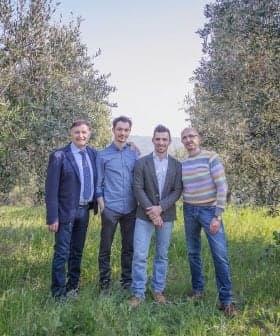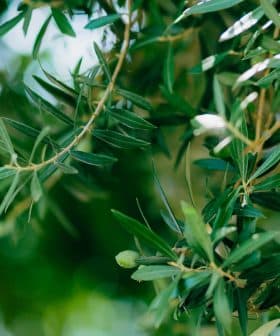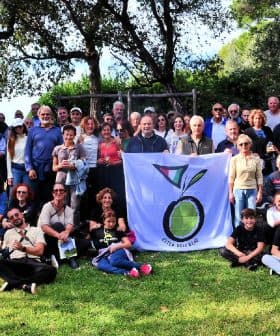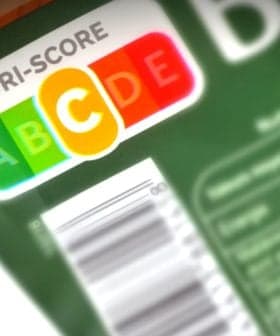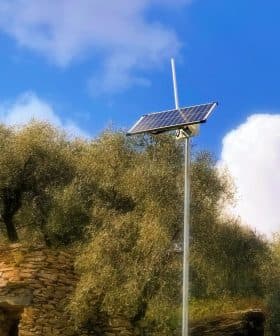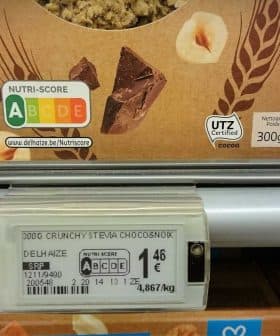Italian Antitrust Authority Fines Lidl, Deoleo and Coricelli for Misleading Consumers
The Italian Antitrust Authority imposed fines on the global discount supermarket chain Lidl and the world's largest olive oil producer for mislabeling olive oil.
The Italian Antitrust Authority fined Lidl, Deoleo, and Pietro Coricelli nearly €1 million for misleading consumers by labeling their olive oils as “extra virgin” when they only met the parameters of the “virgin” grade, following a complaint from consumer rights organizations. The companies are expected to appeal the decision, which was based on tests conducted by the customs agency in Rome that downgraded several popular olive oil brands to virgin grade.
The Italian Antitrust Authority (Autorità Garante della Concorrenza e del Mercato), imposed fines on the global discount supermarket chain Lidl, the world’s largest olive oil producer, Deoleo, and Pietro Coricelli amounting to nearly €1 million, for unfair business practices regarding their olive oil brands.
After reports by the consumer rights magazine Il Test Salvagente, the Konsumer Italia association and the network of consumer associations, Rete Consumatori Italia, a complaint was submitted concerning Deoleo olive oil brands Carapelli, Bertolli, and Sasso; Lidl’s Primadonna brand; and Coricelli.
The outcome of the organoleptic test is sufficient to declare that olive oil does not comply with the category declared.
The Antitrust Authority, after an appraisal of evidence, delivered the judgment, which called the ‘extra virgin olive oil’ indication on the packaging of the olive oils “misleading,” after tests found them to meet the parameters of only the ‘virgin’ grade.
The companies are expected to appeal the decision to the Latium regional administrative court.
The investigation started after a report by the magazine for consumer rights ‘Il Test Salvagente,’ which in May 2015 analyzed olive oil contained in 20 bottles labeled ‘extra virgin olive oil,’ distributed and sold by the most popular supermarkets in Italy.
The analyses were conducted by the chemical laboratory of the customs agency in Rome, which downgraded seven brands to virgin. The Prosecutor of Turin instructed the NAS, officials from the anti-adulteration and health unit of the Carabinieri, to repeat the analyses, which confirmed that the olive oils of some popular brands including Carapelli, Bertolli, Sasso, Primadonna and Coricelli were not extra virgin as labeled.
The new verdict found the companies engaged in practices “contrary to professional diligence and appropriate to distort the economic behavior of the average consumer,” and were therefore “deceptive.”
In quantifying the fines, the Antitrust, given the “seriousness of the breach,” took into account the “economic size” and “turnover” of the companies, and the “spreading of practice.” (Carapelli, Bertolli and Sasso withdrew the products belonging to the lots in question in May 2016; Coricelli removed the bottles from the shelves of supermarkets on December 2015.)
The defense argument that sensory panel tests were “unreliable” was rejected and the judges declared that “the outcome of the organoleptic test is sufficient to declare that olive oil does not comply with the category declared.”
Regarding De Cecco, another brand charged by the complaint, the Antitrust ruled that its product “corresponds to the category ‘extra virgin’ declared on the label.”
“The Authority’s decision is a strong signal of protection for consumers,” said Matteo Pennacchia, responsible for the agrifood sector of the association Codici. “We finally have the certainty of deception to which consumers have been misled for years. With our network, we will continue the legal battle in all the relevant fora.”
The president of Konsumer Fabrizio Premuti told Olive Oil Times, “the Antitrust sentence provides clarity on the major olive oil labels that we find in supermarkets and above all on those who sold us virgin olive oil declaring and advertising it as extra virgin. Thanks to the synergy between the independent information of Il Test Salvagente and our associations, consumers today know that olive oils which were extra virgin only on the label were still on the shelves,” he pointed out.
“A real Italian extra virgin olive oil has a cost of production higher than €6, therefore a €3 extra virgin olive oil should make you reflect. Every purchase should always be made in the awareness of a transparent and truthful offer, not of a sanctions process.”


